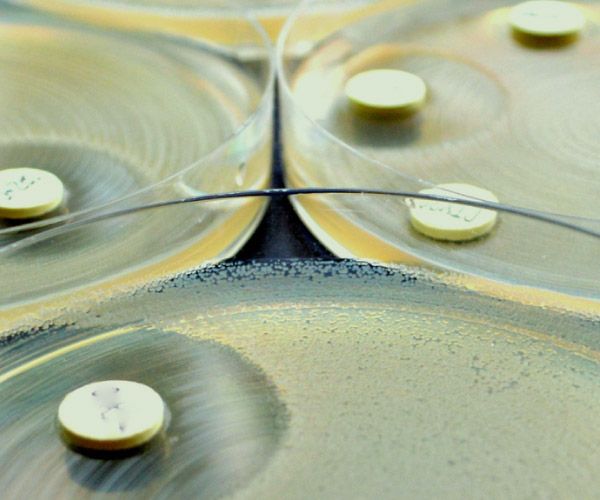
Microbion Corporation products
Microbion - Diabetic Foot Ulcer Infection
Diabetic foot infections (DFIs) are the leading cause of diabetes-related hospitalizations and one of the leading causes of lower limb amputation.1,2 While mild infections may be easily treated, moderate infections may be limb threatening, and severe infections may be life threatening.1 The estimated lifetime risk in a person with diabetes mellitus of developing a foot ulcer ranges from 15% to 25%. The incidence and complications related to DFIs has drastically increased due to the higher incidence of multidrug resistant (MDR) organisms, and the prevalence of MRSA involvement in DFIs in the US has increased from 11.6% to 21.9% between 2003 and 2007.4,5 It has been suggested that Gram-positive bacteria tend to predominate in acute DFIs, and Gram-negative and anaerobes tend to predominate in more persistent, chronic infections. 5,6
Microbion - Therapeutic Applications
Microbion has two Phase 2 clinical programs in diabetic foot ulcer infection and orthopedic implant infection. In addition, preclinical programs are under development for multiple therapeutic indications, including the treatment of serious respiratory infections.
Cystic Fibrosis Pulmonary Respiratory Infection
Cystic Fibrosis (CF) lung disease, which is estimated to affect more than 30,000 in the US and 70,000 worldwide1, is characterized by chronic bacterial infection and severe inflammation that leads to progressive deterioration in lung function. Chronic pulmonary infections in CF patients, a significant portion which involves Pseudomonas aeruginosa, are characterized by persistence, biofilm formation, evasion of the host’s immune response, and resistance to multiple therapeutic agents. Multispecies biofilm formed by combinations of CF-relevant bacteria have demonstrated greater resistance, virulence and pathogenicity than comparable single-species biofilms.
Microbion - Orthopedic-Implant Infection
Postoperative orthopedic infections, particularly antibiotic-resistant infections, present a serious clinical challenge to surgeons and other treating physicians, since these infections involve surgically installed orthopedic hardware which are frequently associated with persistent microbial biofilms.1 Surgical intervention, irrigation, debridement and potential replacement of orthopedic hardware, combined with a prolonged course of systemic antibiotics (i.e. antibiotics taken intravenously or orally), is the standard of care for postoperative infections.2,3 However, outcomes associated with these infections are often poor including: chronic/recurrent infections; repeated hospitalizations; repeated surgeries; multiple courses of systemic antibiotic treatment; loss of function; disability; amputation; and death.
Microbion - Antibiofilm Technology
Microbial biofilms are structured communities of bacterial cells enclosed in a self-produced matrix that provides a protective shield for bacteria to thrive and resist damage from many extreme environmental conditions. Pravibismane uniquely and potently eradicates bacteria and the biofilms they form.


